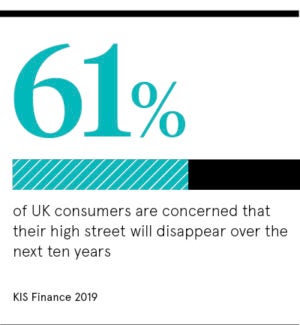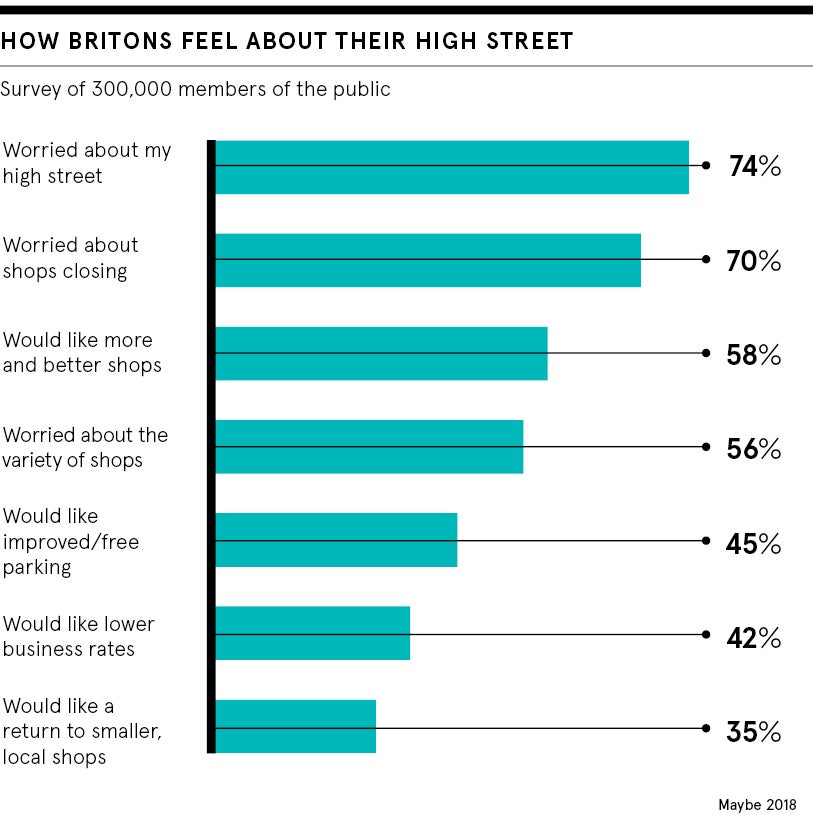Take a walk down any high street and there is a clear distinction between shops that have existed in some form for centuries and newcomers. You may see a traditional butchers, bakers or barbers, but then there are those shops that have sprung up much more recently, responding to changing consumer demands and the evolution of technology.
Vape Emporium in Hampstead, north London, can certainly be classed in the latter category. Driven by the ban on smoking in public places and the proliferation of healthier alternatives, vape shops have sprung up everywhere in recent years, but Vape Emporium was one of the first. Former smoker Andy Logan established the business online in 2013 and opened the shop the following year when he realised that the newness of vaping called for a more personalised sales experience.
If you’re going to have a lease and pay rent and business rates, there has to be a reason to have that physical presence and that is all about people
“We were pretty much the first designated shop in London selling vape products, but there was some nervousness and anxiety among customers at that time, so it made sense to open a store where we could explain the concept of vaping, answer questions and reassure buyers,” Mr Logan explains.
The success of Vape Emporium – its turnover grew from £200,000 in its first year to £940,000 in year three, with a second shop opened in Richmond in 2015 – may be a subtle sign of a larger change taking hold on the high street. Independent, artisan retailers offering a personalised service that cannot be found online have a chance to thrive.
The rise of independent shops could revitalise the high street
It’s not a trend that gets much airtime these days, as the news is filled with the many well-known high street stores struggling for survival. Marks & Spencer plans to close 100 stores by 2022. Tesco is closing its fresh food counters at 90 stores. Even the John Lewis Partnership has seen a slump in profits amid challenging trading conditions.
Concentrate only on the household names and it would be easy to conclude that the high street’s days are numbered. But successful independent businesses may have a brighter future than their larger brethren and the high street could ultimately look more like it did a generation ago, with independent shops stepping up to fill the gaps left by the large chain stores.
“I don’t believe our high streets are dying; I believe they are evolving,” says Martin Newman, retail expert and founder of the Customer First Group. “The big town centres have become very homogenous with the same national chains. Consumers invest time and money to visit the high street, but much of what is offered by the large chains can now be bought online.”
As the large chain stores struggle to compete with the growth of online retailing, independents could take their place, from toy shops, book shops and jewellers to butchers, fishmongers and bakeries.
“It is the independent retailers and the artisans that will fill the gap by offering a more personalised experience,” says Mr Newman. “We already see this in the more successful town centres that are mainly populated by independent businesses.”
There is a need to create more in-store customer experiences
It is not quite as straightforward as reverting to times gone by, of course. High street retailers must overcome a maelstrom of challenges to succeed, from managing punitive leases and rental costs to creating a digital presence that puts them on the map without cannibalising the in-person sales experience.
Retail commentator Michael Weedon believes the successful independent retailers are those that can find an effective way to bring customers into their shops and retain them. Book shops with in-house coffee counters are an obvious example, but this model can extend to other sectors as well, such as chocolate shops offering chocolate-making experiences or liquor shops providing tasting sessions.
“If you’re going to have a lease and pay rent and business rates, there has to be a reason to have that physical presence and that is all about people. Shops need to be able to draw customers in and keep them there; it’s all about stickiness,” says Mr Weedon.
It was the personalised experience that gave Mr Logan an edge in the early days of the Vape Emporium, but now that vapes have become more widely available and better understood, he has had to evolve. With the recent surge of interest in cannabidiol (CBD) as a healing therapy, he converted part of the Hampstead high street store into a CBD shop in December 2018.
The new venture is underpinned by the same philosophy that he applied to vaping of supporting consumers and providing a personalised environment for them to explore a new concept. “This is still a relatively new treatment in the UK and people need a space where they can have their questions answered, just as they did with vapes,” he says.
For independent retailers to thrive, they must be able to adapt
 Willingness to adapt to changing market conditions and provide a positive customer experience are among the traits required for an independent retailer to be successful. Others include the creation of a digital experience that complements the physical presence and the ability to connect positively with the local community.
Willingness to adapt to changing market conditions and provide a positive customer experience are among the traits required for an independent retailer to be successful. Others include the creation of a digital experience that complements the physical presence and the ability to connect positively with the local community.
“This is the most transformative era in the history of high street retailing and those shops that are doubling down, investing in their businesses and evolving with the times are thriving,” says Alex Schlagman, co-founder of SaveTheHighStreet.org.
SaveTheHighStreet has conducted extensive research into how independent retailers can be successful. The group estimates that across roughly 5,000 high street communities in the UK, there are around 500,000 outlets of which up to 300,000 are independents.
The future of the high street relies on retailers getting their strategy right
The proportion of independents may well rise as the high street evolves in coming years. This will rely not only on businesses getting their strategy right, from developing a clear business model to embracing digital, while striking the right balance between online and offline sales, but also on landlords being more flexible with leases.
Having worked in the corporate world before founding Vape Emporium, Mr Logan had savings that he was able to invest to fund startup costs, but exorbitant rental costs and demands for large upfront payments can create insurmountable obstacles for independent businesses.
“Rental costs are a huge problem and made it difficult for us to raise money at the start,” says Mr Logan. “Landlords have become greedy over the years because the big chains had deep pockets and could afford to pay, but it means many smaller businesses are crippled before they have even started.”
The rise of independent shops could revitalise the high street

